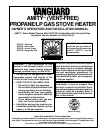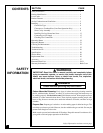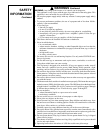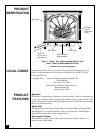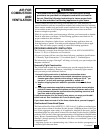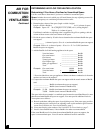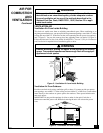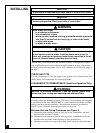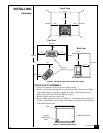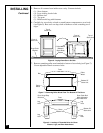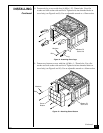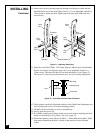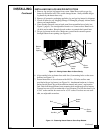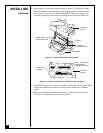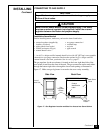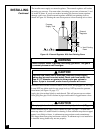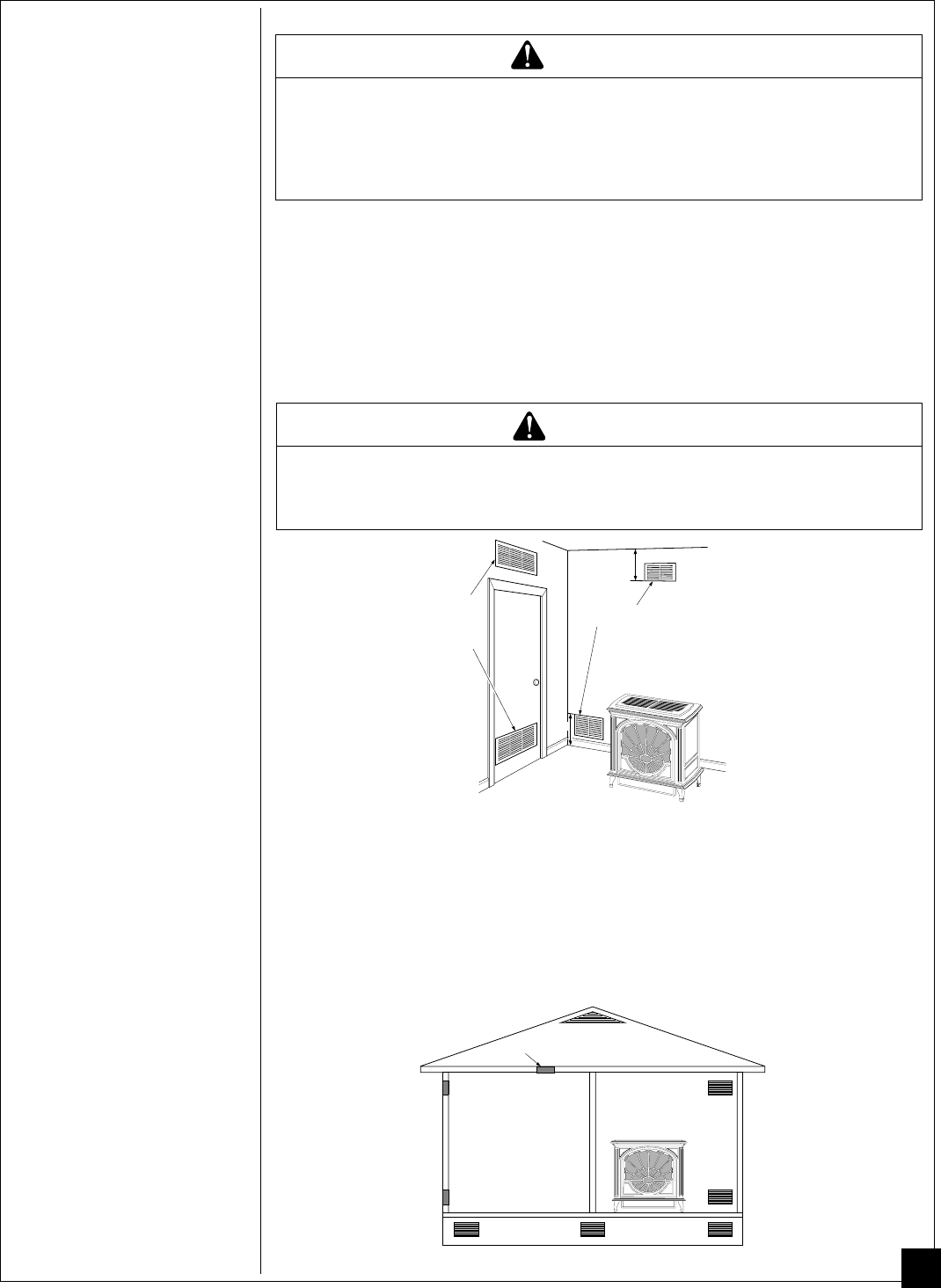
7
104025
WARNING ICON G 001
WARNING
If the area in which the heater may be operated is smaller than
that defined as an unconfined space, provide adequate combus-
tion and ventilation air by one of the methods described in the
National Fuel Gas Code, ANSI Z223.1, 1992, Section 5.3
or appli-
cable local codes.
AIR FOR
COMBUSTION
AND
VENTILATION
Continued
Figure 3 - Ventilation Air from Outdoors
Ventilation Air From Outdoors
Provide extra fresh air by using ventilation grills or ducts. You must provide two perma-
nent openings: one within 12" of the ceiling and one within 12" of the floor. Connect these
items directly to the outdoors or spaces open to the outdoors. These spaces include attics
and crawl spaces.
IMPORTANT:
Do not provide openings for inlet or outlet air into attic if attic has a
thermostat-controlled power vent. Heated air entering the attic will activate the power
vent.
Figure 2 - Ventilation Air from Inside Building
VENTILATION AIR
Ventilation Air From Inside Building
This fresh air would come from an adjoining unconfined space. When ventilating to an
adjoining unconfined space, you must provide two permanent openings: one within 12" of the
ceiling and one within 12" of the floor on the wall connecting the two spaces (see options 1
and 2, Figure 2). You can also remove door into adjoining room (see option 3, Figure 2).
Follow the National Fuel Gas Code NFPA 54/ANSI Z223.1, Section 5.3, Air for Combustion
and Ventilation for required size of ventilation grills or ducts.
WARNING ICON G 001
WARNING
Rework worksheet, adding the space of the adjoining unconfined
space.
The combined spaces must have enough fresh air to supply all
appliances in both spaces.
Outlet
Air
Ventilated
Attic
Outlet
Air
Inlet
Air
Inlet Air
Ventilated
Crawl Space
To
Crawl
Space
To Attic
Or
Remove
Door into
Adjoining
Room,
Option
3
Ventilation Grills
Into Adjoining Room,
Option 2
Ventilation
Grills
Into Adjoining
Room,
Option 1
12"
12"



